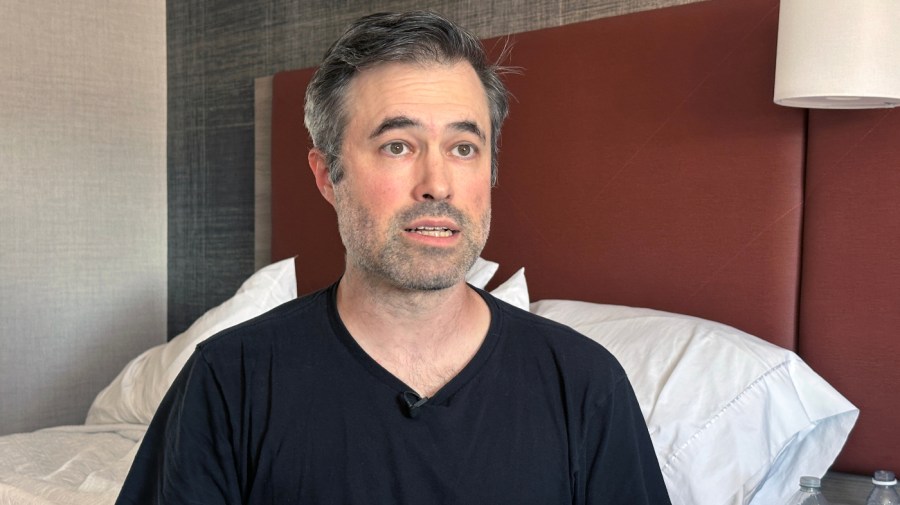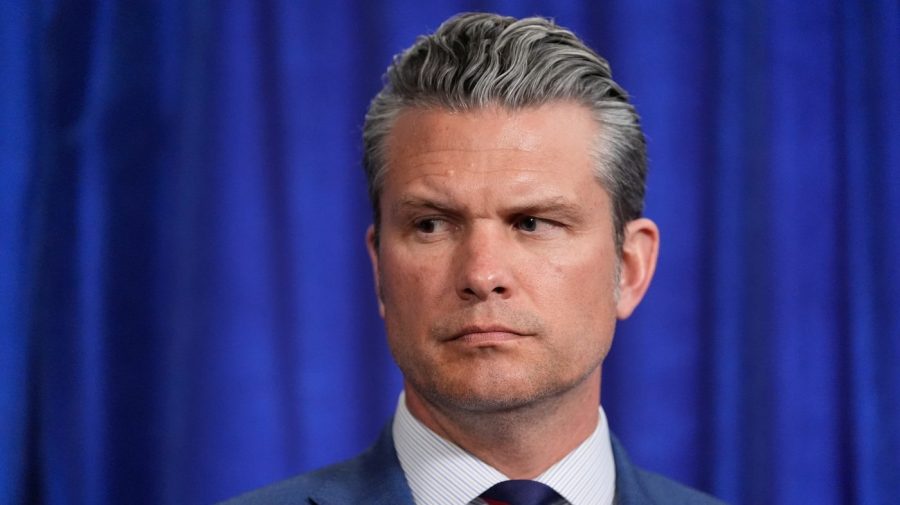
Last week, faculty and students signed a petition to expel the local Turning Point student chapter from Rutgers University. The call followed a separate demand from the group to fire Rutgers professor Mark Bray, author of the “Antifa Handbook.”
As is often the case, both sides are portraying themselves as defenders of freedom of expression while trying to silence the other.
Free speech is suddenly back in vogue on many campuses. After years of being completely silent, faculty members are suddenly worried about a threat to free speech as conservative faculty were removed from departments and conservative speakers were canceled on campus. Democratic leaders like Hillary ClintonThose who supported censorship under the Biden administration are also declaring themselves free speech champions.
The Rutgers controversy is indeed a teachable moment in how free speech values demand more than support for your favorite speech. The test of principle is to support the speech of those with whom you disagree, even those you hate.
Those of us in the free speech community are rarely called upon to defend popular speech. More often than not, we support the speech of people who not only hate free speech but also hate us. Many of those we protect have worked to deny the freedom of speech of others.
Shortly after the murder of Charlie Kirk, I wrote The way to stand with Charlie is to stand with freedom of speech. Charlie was the target, not the proponent of canceled campaigns.
So, I was disappointed when Rutgers TPUSA members called for Bray’s firing. I have been a critic of Braz for a long time. In fact, I testified about Antifa before Congress, ran a column on the organization for more than a decade, and wrote A book discussing antifaThis includes years of criticism of Bray and his book.
Bray has long been a controversial figure in academia. 2017 in Washington Post Article The title, “Who are Antifa?” Bray wrote, “Antifascists argue that after the horrors of chattel slavery and the Holocaust, physical violence against white supremacists is morally justified and strategically effective.”
Bray’s writings have rallied extremists to the cause over the years.
Onepetitionstated that “Dr. Bray has regularly referred to mainstream conservative figures like Bill O’Reilly as fascists, while he calls for extremist action against these individuals. This is the kind of rhetoric that resulted in Charlie Kirk being murdered last month.”
It also notes that Bray “pays half of the income”.Antifa: The Anti-Fascist HandbookTo defend arrested antifa members.
Despite such criticism, I oppose efforts to fire Bray. There is no evidence that Bray has ever been involved in violence or criminal conduct. He is clearly an academic with extremist views, but to fire him is to make him no better than Antifa – the most violent and anti-free speech movement in our country.
in him “Antifa: The Anti-Fascist Handbook” Bray described how Antifa is composed primarily of “anarchists or anti-establishment communists” who believe that “‘free speech’… is merely a bourgeois fantasy that is not worth considering.”
Bray is now facing exactly the same kind of blind rage that Antifa has been unleashing against its targets for decades. He fled to Europe due to threats against him and his family. Whether you call it karma or irony, those who identify with it this way are no better than Antifa. His firing would be an attack on both free speech and academic freedom protections.
Meanwhile, other Rutgers faculty and students are calling for Turning Point to be expelled. Their petition accuses Turning Point of “promoting hate speech and inciting violence against our community.” Professors, including Tia Kolbaba, associate professor of religion at Rutgers, reportedly signed it.
These faculty members and students are demonstrating the same intolerance that long ago turned higher education into the ideological echo chamber that the left has now become.
Neither side is willing to tolerate opposing views, and both believe that their anger is justified, while the other side’s anger is dangerous.
It is often difficult to draw the line on the right to freedom of expression. In my book, “Inalienable Rights: Free Speech in the Age of Anger,, I argue that universities should focus on the conduct rather than the content of speech. Occupying buildings, harassing students, destroying property, and yelling at speakers are forms of conduct that should result in suspension or expulsion.
Another professor also raised questions about off-campus conduct this week. Elias Cepeda, a journalist and english professor at Northeastern Illinois University, was arrested A man with a loaded gun and a large amount of ammunition outside an ICE facility in Broadview, Illinois, the site of violent protests.
Cepeda is a suspected Antifa member and has social posts calling ICE Nazis and calling for armed resistance. In response to Homeland Security’s posting about an incident involving ICE officers being attacked by a man smoking weed, Cepeda responded, “First of all, the video you just posted shows that your Nazi asses are lying. Second, we would all be morally justified in getting your Nazi heads chopped off by a man smoking weed.”
He recentlyannounced“There are worse things than civil war.”
He is calling on teachers to come armed to protect students from any ICE officers who come to school. He then appeared armed at an ICE facility. Later he was released.
If Cepeda has committed a crime or made a criminal threat at the facility, his conduct could and should be grounds for dismissal by the University. It’s unclear what, if any, charges may be filed in the case.
Meanwhile, constitutional protections for speech do not mean that speech should not be condemned. This week, Senate Minority Leader Chuck Schumer supported the “No Kings” protests and declared that people should be “No Kings.”force upCommentators such as former CNN host Don Lemon Called on minorities to take guns So that they can defend themselves against federal law enforcement officers.
This speech is deliberately inflammatory at a time of increasing political violence. These are the same voices we have heard in every “Age of Wrath.” But that’s the price we pay for free speech.
However, the path chosen by many at Rutgers has a far higher cost. Giving in to our anger will put us on the slippery slope of censorship. We can live with Bray’s teaching at Rutgers. We cannot survive without free speech.
Jonathan Turley is the Shapiro Professor of Public Interest Law at The George Washington University. He is the author of the best-selling book “”.Inalienable Rights: Free Speech in the Age of Anger,












